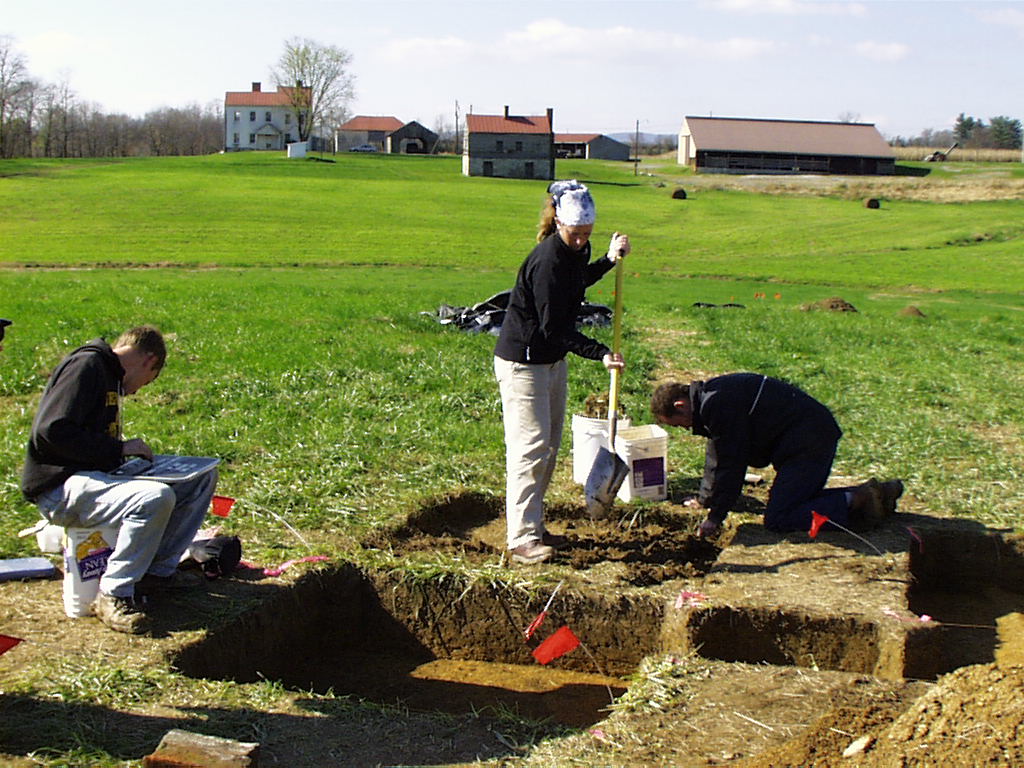 Best Farm, Monocacy National Battlefield, Frederick Co.
Best Farm, Monocacy National Battlefield, Frederick Co.
Step 2 of the Section 106 process involves identifying cultural resources that may be affected by a
project and evaluating their significance. Under Section 106, federal agencies must consider the
effects of their actions on historic properties, defined as resources that are included in, or
eligible for inclusion in, the National Register of Historic Places. Maryland's diverse cultural
heritage encompasses a broad range of resources including historic buildings, archaeological sites on
land and underwater, historic districts, engineering structures, and objects. MHT maintains extensive
records and information on these resources, organized and available online through
Medusa (Maryland's Cultural Resource Information
System) and the MHT Library.
Agencies and recipients of agency assistance may need to undertake cultural resource investigations
during project planning or hire consultants to perform those studies. Before conducting survey work,
it is important to have a clear understanding of the needed scope of work, in consultation with MHT.
Consultants should request copies of all MHT correspondence related to a project from their client.
Please contact the Project Review and Compliance Unit by email at
mht.section106@maryland.gov for any needed guidance.
Survey and Evaluation Standards
MHT provides helpful standards and guidelines for completing archaeological studies, architectural and
historical investigations, and Determinations of Eligibility evaluation efforts. Section 106 affords
consideration to those cultural resources that are listed in or determined eligible for inclusion in
the National Register of Historic Places. Thus,
determinations of eligibility are a critical step in the consultation process.
The National Park Service provides extensive guidance for undertaking evaluation, preservation and
documentation studies Publications
of the National Register of Historic Places.
Determinations of Eligibility
The primary purpose of the Determination of Eligibility (DOE) form is to fulfill a federal or state
agency's obligations under Section 106 to identify historic properties. Agencies will study a
property, recommend it as either meeting or not meeting the National Register Criteria, and
present their findings to MHT for comments and/or concurrence. MHT uses the DOE form to reach
these "consensus determinations" between an agency and MHT for resources evaluated in Maryland.
MHT permanently documents these determinations in the Maryland Inventory of Historic Properties
(MIHP) and Medusa. Efforts to identify and evaluate historic and archaeological resources should build
upon existing information and follow the appropriate MHT guidance and procedures. MHT's guidelines for
preparing DOE Forms are at the link below:
» Instructions
and Resources for Preparing Compliance-Generated DOEs